- Home
- Russell Blake
JET - Ops Files Page 11
JET - Ops Files Read online
Page 11
Angie stripped off her gloves and removed her head gear as she sat beside Maya. She studied her hand, where one of the knuckles was swelling, and touched her lip where it had split. “You’re still favoring your right side when it comes to delivering the coup de grâce. You need to change that up and do nothing but focus on developing your left more. Other than that, very nicely done. You’re a natural.”
“I appreciate it. All I hear from him is that he’s never seen anyone as talentless or difficult to train,” Maya said, glancing at where Gurion was standing out of earshot.
“Don’t let that faze you. He was the same when he trained me. It’s his style. Nothing personal.”
“He was your instructor?”
Angie nodded. “He’s been at this for a while. And what he taught me saved my life more than once. He’s the best.” Angie spat pink saliva and felt her upper lip. “But there comes a time when you have to take over, and that’s when you either move to the next level or crash and burn. We’ll show you everything we know, but the truth is you can never learn it all, and this is a lifelong endeavor. It’s like any other kind of training – you have to maintain the discipline with blood and sweat or you lose it. Never forget that. Laziness has killed more operatives than bullets.”
Maya’s firearms practice was now down two hours to make room for two hours of explosives course. She spent her time with Teo honing her sniper skills on a variety of rifles while he explained the nuances of ballistics.
“With that .50 caliber Barrett, for every meter of distance, you have to adjust the scope to compensate for the drop. At 1000 meters, you’re actually aiming about seven meters above the target. Which is further complicated by wind drift, humidity, altitude, temperature, and barometric pressure. That’s why snipers use handheld computers and laser range finders to do the calculations. You’ll probably never have to make a shot anything like 1000 meters, but you need to understand all this nonetheless.”
She knew all this from her homework reading, but merely nodded assent.
“The bullet will also slow as a function of traveling through the atmosphere. It’s somewhat counterintuitive, but the higher the humidity, the less loss of momentum. In conditions like this – mostly dry, with a relatively high temperature – you can expect the bullet to have lost around a third of its velocity by the time it hits the target. That translates into less energy at impact, as well as greater drop over the distance, which you’ll be adjusting for.”
Maya nodded again.
Teo continued. “Smaller rounds will drop even more, which is why the accuracy of something like a 30-06 trails off after four hundred meters. By the time you’re up to 1000 meters, the bullet’s dropped by around ten meters under the best of circumstances, so you’re really aiming three stories above the target.”
“And your velocity will have lost over sixty percent,” Maya said. “I actually read what you give me, you know.”
“All right, smartass, let’s see if you’ve learned to hit the side of a barn, shall we?”
After ten rounds at four hundred meters, Maya’s score was considerably better than the same grouping had been two weeks earlier, which was already surprisingly tight, and Teo acceded that she’d indeed been applying herself.
“But before you get too cocky, sharpshooting is a skill that takes constant practice,” he warned. “Even once you’re out of here, you need to stay on top of it throughout your lifetime.”
“I’m detecting a theme in all the training,” she said dryly.
“If you take my counsel to heart, that lifetime will be a hell of a lot longer than if you don’t,” Teo cautioned.
“Point taken.”
Her explosives instructor was named Ross, a paunchy man with thick glasses, a bald pate, and a perpetual frown, who didn’t talk much beyond his explanation of the intricacies of the devices he’d shown her how to construct and defuse. The prior week had been spent learning about how to make bombs from items under the average sink, and Maya had been fascinated at how many lethal combinations could be crafted from apparently benign ingredients.
Today he was showing her how to make thermite, should she ever have the need. He demonstrated the amount of powdered aluminum to mix with iron oxide, and once he’d created a sufficient quantity, he scooped it up and poured it onto a thick steel square he’d set on the dirt.
“I’d recommend using a magnesium strip to ignite it if at all possible, but in a pinch, a common sparkler will do. But it’s dangerous to do it that way, because the material can be triggered by the sparks it throws off before the sparkler burns down to the contact point with the thermite.” He eyed the small pile. “You can also use potassium permanganate and glycerol for a more controlled ignition, of course.”
“Of course.”
“Stand back another few meters,” Ross said, and once she had, he adjusted his safety goggles and lit the magnesium ribbon. He hurried away and stood by Maya’s side.
Five seconds later the thermite ignited in a blinding flash, and Maya had to squint to keep watching it. When it was done reacting, they approached the plate, which now had an eight-inch-diameter hole burned through it. Beneath it, molten steel glowed in the dirt.
“It’s one way to get into anything protected by a heavy steel door, assuming you don’t have a plasma torch handy.”
“Interesting.”
“I think so. It’s also one of the giveaways that thermite charges were used to bring down a building – you’d expect to see residual molten steel in the rubble. There’s only one thing that will cause that.”
When the explosives tutorial was over, Nava met Maya in the bunker she referred to as her spy lair with a warm smile.
“I’m going to show you about fifty ways to alter your appearance with simple tricks you can pull off anywhere. Things like sunglasses, reversible jackets, wearing multiple layers of colored T-shirts, baseball caps, hair ties and clips, wigs, dye, the whole works. Also, easy and fast things like cotton wadded in your cheeks can dramatically alter the shape of your face, as can thickening your eyebrows with pencil and using different color foundations, or shadowing below your eyes to create the illusion of discoloration that comes with age or illness.”
“Cotton?”
“Sure. If you were a man, I could also show you how facial hair can completely alter your appearance – people tend to remember a beard rather than a face when asked to recall something distinguishing. In fact, we’ll cover how to put on a mustache or goatee, should you ever need to pass as a man – although with your figure, you might have a hard time of it,” Nava said, nodding at Maya’s breasts.
“Still. You never know.”
“Exactly.”
Maya spent two hours absorbing Nava’s rapid-fire dissertation on disguises, taking mental notes and dreading the mountain of reading she knew would accompany the lesson. When Nava finished her monologue, she sat back and blinked several times. “Of course, there’s more, but that should do it for the topic for today. We’ll come back and apply some of the lesson tomorrow. Now I want to discuss how to disable or kill using anything at your disposal – a pen or pencil, a credit card, a newspaper, scissors. I’ll also show you how to make a weapon out of countless items you can get your hands on once you’re through security at any airport. And I’m not talking box cutters. I’m talking full-blown lethal weapons.”
“Wait. On the other side of security?”
“Exactly. Crossbows. Fragmentation grenades. Incendiary devices.”
“A crossbow?”
“Very accurate, too. Using an umbrella you can get at any gift shop, condoms, a key ring, and a few other odds and ends.”
“This I have to see.”
Fifteen minutes later Maya and Nava had made a functioning crossbow that could easily drive a sharpened shaft through a human throat or into a heart. Nava fired it at a melon, and they measured the penetration.
“It’s only got an effective range of three to five meters, but you can see how if y
ou get yourself into a situation where you need a weapon but don’t have a gun or a knife, you could improvise something fairly quickly. A grenade only takes a little over five minutes, using super glue, a metal coffee mug, some batteries, a small can of aerosol spray, and a glass bead necklace. The beads are to add projectiles to the mix. All of which can also be bought in the gift shop.”
Nava assembled one while Maya watched and then tossed it out the window, where it detonated on a barren patch of dirt five seconds later.
“Now let’s look at how to sever a target’s carotid artery with a credit card, shall we?”
When their four-hour session was up, Maya had a new appreciation of just how deadly the universe was in skilled hands. As she returned to the barracks, laden with reading material, she resolved to become an expert like Nava, so no matter what the situation she would be lethal.
She pushed through the door and saw that one of the remaining women’s cots was folded away, leaving only the two of them.
Maya hesitated at her locker and then shook her head. It didn’t really matter to her what happened to those who didn’t make it through the course, and she wouldn’t let her imagination distract her.
Because she intended to do whatever it took to finish it successfully.
For the first time in her life, she’d discovered what she was good at, and she had no intention of allowing anything to come between her and her goal. Whatever the effort, whatever the personal cost, she would become a master of the covert dark arts she was being taught: a devastatingly effective angel of death.
Chapter 21
Teluk Ciasem Bay, Indonesia
Putra and Wira walked together along a stone path that meandered along the shore, watching groups of children dressed in little more than rags on the rocks, laughing and cavorting as the gentle surf splashed them, the sun caressing their soaking forms. The turquoise water stretched to the horizon, where a line of thunderheads brooded in the distance, occasional veins of lightning branching through the advancing gale with vivid white flashes.
“Tell me again. How much? I want to make sure I’m not imagining things.”
“Eight million U.S.”
“For one canister? That is insane,” Wira spat.
“The intermediary indicated that there might be some flexibility in the price, depending on our timing.”
“Still, even if we finish out at five, it is a king’s ransom.”
“I don’t disagree. Perhaps we should be thinking smaller scale. I am still trying to track down some Russian C-4 that is supposedly going to be smuggled through the Ukraine, but it is proving to be elusive.”
“C-4 will not do what I have in mind. Nothing on more conventional material? Sarin? Mustard gas out of Iran?”
“The world is a different place, unfortunately. Many of the traditional channels have dried up over the last few years. Nobody wants to invite the wrath of the Americans, who have a hair trigger after the New York attack.”
“Cowards.”
“No question. But it has made everything more difficult.” Putra hesitated. “Perhaps we should postpone our plans until the international situation has relaxed?”
“And lose any momentum we have built? Absolutely not.” Wira stared off at the nearing clouds as if hearing a siren call before he abruptly turned and retraced his footsteps. A brown puppy ran on wobbly legs to a young couple standing with their arms intertwined as a passerby took their picture. The little dog, no more than eight weeks old, barked joyfully at the sight of its masters, the embodiment of loyalty and love.
Putra nodded. “Then how would you like to proceed?”
“Begin negotiating. I need to understand exactly how much we need to raise. But if it is in that five million range, I don’t have to tell you it won’t happen overnight. We will need to have our fundraising brothers in the States begin passing the hat. The Saudis made clear they will not be participating when I spoke to their representative last week. Bigger fish to fry is what he said. As if there are any bigger fish than the one we are targeting.” Wira stopped and turned to Putra. “We will need assurances that we are not wasting our time with someone who cannot perform. Do we know anything about the seller?”
“He comes with the very best of references.”
“Good.” Wira resumed walking as the sky darkened with the first of the high overcast that was the precursor of the approaching storm. They had parked in a dirt lot with dozens of vehicles, their cars anonymous among the rest. Wira routinely changed vehicles, never keeping one more than a few weeks; his acolytes were more than willing to steal new ones and change the plates as part of their tribute to the guerilla hero. When they reached his car, his eyes swept the lot before coming to rest on Putra’s face. “Whatever you need. Make it so. I shall inform our funding sources of our requirements. It is a large sum, but one that is possible if we have time.”
“I shall put the wheels in motion.”
“Where is the material? Did you discover its whereabouts?”
“No, but at that price delivery should not be a problem.” Putra frowned. “Although the contact did imply that it was in this region, but he could well be telling us what he thinks we want to hear.”
“And he was clear on the level of casualties we are after?”
“Oh, yes. His description of the amount of space it would affect was almost triple what we require.”
“What about the delivery system. How will we deploy it?”
“We have a man already working for the maintenance company that handles the building. By the time we are ready, he will have been there for months, so he will be above suspicion. Although based on the handling requirements, it is unlikely that he will make it out alive.”
Wira shrugged. “Every jihad has its martyrs. They will be welcomed into Paradise as heroes, even if unwitting ones.”
Chapter 22
Tel Aviv, Israel
Another week drew to a close, and when Maya finished her training interval with Nava and was packing her bag with the night’s homework, Nava surprised her with an unexpected display of friendliness.
“You’ve been cooped up on base for two months, right? Tell you what. I’ll come by and pick you up at nine, and we can go out for a couple of hours and have some snacks and a drink.”
“Is that allowed?”
“I’m a senior instructor. Of course it’s allowed, or I wouldn’t have proposed it. Don’t worry. You’ll be with me. You’re doing brilliantly with the training, and you deserve a break. I’ll clear it with the powers that be.” She paused. “Do you have any civilian clothes?”
Maya shook her head. “No. I only have my sweats and a uniform.”
“Hmm. Well, you look about the same size as me. I’ll bring a blouse and a pair of pants.”
“I…thank you.”
“My pleasure. I get stir-crazy here after a while, too. It’ll feel good to let down my hair, you know?”
Maya walked across the field to the barracks as the sun’s final rays faded to twilight, the air still, as if the world was in a state of suspended animation while the day conceded its hold to night. Her lone roommate had disappeared the day before, and her cot had been removed, leaving Maya the sole inhabitant – disconcerting, but also validation that she was making the grade.
Dinner was a typically quiet affair. She read about the latest advances in surveillance countermeasures, absorbing the dense data like a sponge, the highly technical description of encryption protocols and server Achilles’ heels no challenge for her. She’d always been interested in anything related to computers and had an innate ability to digest concepts that would have made a layman’s head swim. If she weren’t training to be a super spy, her plan when she got out of the IDF had been to enroll in the local university and get a degree in computer science so she could work on architecting software, having devoured tomes on programming during long nights in the orphanage, along with anything relating to languages.
Those two fixations had been her
escape from reality when she’d been released into the world at eighteen. While her peers had been developing their interest in boys and fashion, she’d been concentrating on working out, broadening her linguistic horizons, and learning everything she could about computers, her happiest moment every two weeks being when the library would get her requested books.
At 9:00, a Fiat pulled to a stop outside the barracks, and Nava got out, a small plastic grocery bag in one hand. Maya greeted her at the door, noting how different she looked in a long-sleeved top and ivory pants.
“Oh, my God. Are you wearing makeup?” Maya asked.
“I am a master of disguise, remember?” She tossed the bag of clothes to Maya. “Hurry up and get dressed. We’ve only got a few hours, and there’s no point in wasting any of it.”
Maya slipped into the civilian clothes and adjusted her blouse, then pulled on her running shoes. She stood and did a pirouette, arms extended.
“Well? What do you think?”
“I think I wish I filled out that outfit like you do.”
Nava drove into Tel Aviv, and Maya realized just how far out of town their mystery base was. Twenty-five minutes later, Nava shut off the engine outside a baby blue building with a neon sign above the entrance that featured a prancing pony. The parking lot was three-quarters full, the vehicles mostly economy cars and older SUVs.
“What is this place?” Maya asked, eyeing the surroundings.
“It’s just a low-key bar that has live music Thursdays and Fridays. Nothing trendy, just cold beer and a mediocre band.”
When they pushed through the door, amplified acoustic guitars welcomed them. A trio of scruffy young men in their mid-twenties on a postage-stamp stage were doing their best imitation of MTV unplugged. Their harmonies were surprisingly good, and Maya decided she liked the place, even if it was more crowded than she would have preferred. Nava spotted an opening at the long bar and took Maya’s hand, leading her to the gap with the authority of a mother hen. They sat on the hardwood stools and studied a blackboard with the names of two dozen beers handwritten on it, and Nava signaled to the bartender, a voluptuous twenty-something brunette wearing a Harley T-shirt and jeans that could have been airbrushed on.

 Night of the Assassin
Night of the Assassin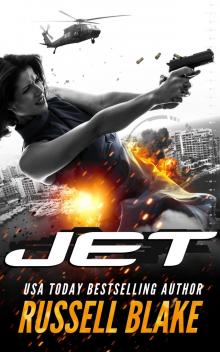 Jet
Jet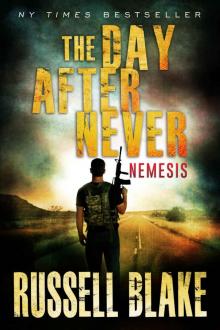 The Day After Never - Nemesis (Post-Apocalyptic Dystopian Thriller - Book 9)
The Day After Never - Nemesis (Post-Apocalyptic Dystopian Thriller - Book 9)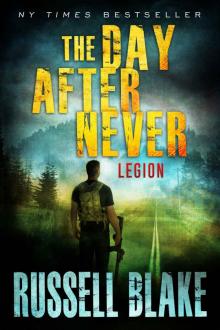 The Day After Never - Legion (Post-Apocalyptic Dystopian Thriller - Book 8)
The Day After Never - Legion (Post-Apocalyptic Dystopian Thriller - Book 8)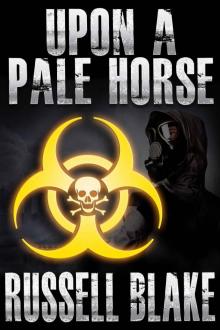 Upon A Pale Horse (Bio-Thriller)
Upon A Pale Horse (Bio-Thriller)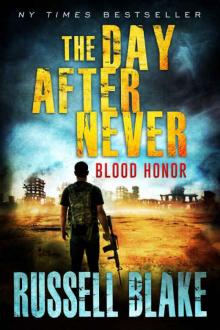 The Day After Never (Book 1): Blood Honor
The Day After Never (Book 1): Blood Honor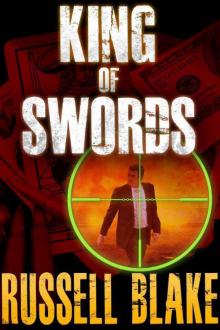 King of Swords a-1
King of Swords a-1 The Day After Never Bundle (First 4 novels)
The Day After Never Bundle (First 4 novels) Emerald Buddha (Drake Ramsey Book 2)
Emerald Buddha (Drake Ramsey Book 2) BLACK to Reality
BLACK to Reality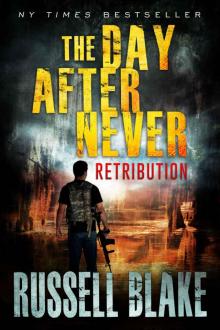 The Day After Never - Retribution (Post-Apocalyptic Dystopian Thriller - Book 4)
The Day After Never - Retribution (Post-Apocalyptic Dystopian Thriller - Book 4) Ramsey's Gold (Drake Ramsey Book 1)
Ramsey's Gold (Drake Ramsey Book 1)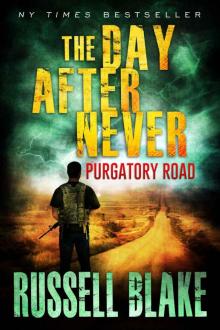 The Day After Never (Book 2): Purgatory Road
The Day After Never (Book 2): Purgatory Road JET - Ops Files
JET - Ops Files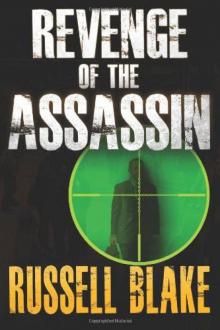 Revenge of the Assassin a-2
Revenge of the Assassin a-2 Requiem for the Assassin - 06
Requiem for the Assassin - 06 The Geronimo Breach
The Geronimo Breach Sahara
Sahara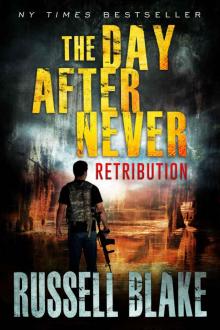 The Day After Never (Book 4): Retribution
The Day After Never (Book 4): Retribution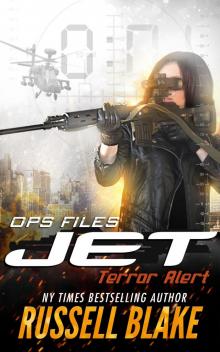 Ops Files II--Terror Alert
Ops Files II--Terror Alert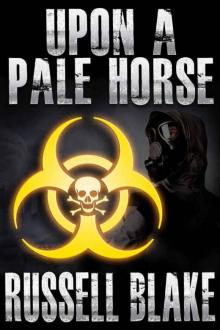 Upon A Pale Horse
Upon A Pale Horse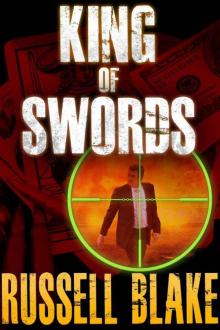 King of Swords (Assassin series #1)
King of Swords (Assassin series #1) A Girl Apart
A Girl Apart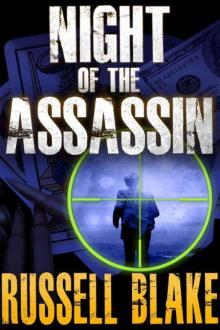 Night of the Assassin: Assassin Series Prequel
Night of the Assassin: Assassin Series Prequel Rage Of The Assassin
Rage Of The Assassin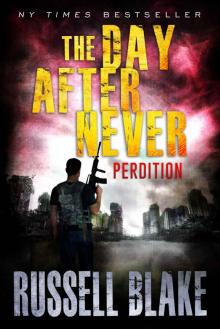 The Day After Never - Perdition (Book 6)
The Day After Never - Perdition (Book 6)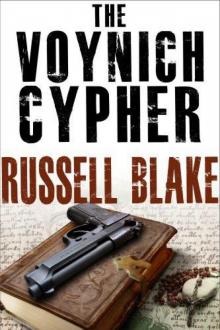 The Voynich Cypher
The Voynich Cypher JET, no. 3
JET, no. 3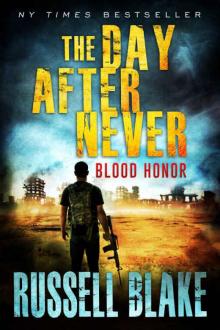 The Day After Never - Blood Honor (Post-Apocalyptic Dystopian Thriller)
The Day After Never - Blood Honor (Post-Apocalyptic Dystopian Thriller) 9 More Killer Thrillers
9 More Killer Thrillers The Goddess Legacy
The Goddess Legacy Fatal Exchange
Fatal Exchange Fatal Exchange (Fatal Series Book 1)
Fatal Exchange (Fatal Series Book 1) JET - Forsaken
JET - Forsaken Black
Black Jet j-1
Jet j-1 Betrayal j-2
Betrayal j-2 Jet 04: Reckoning
Jet 04: Reckoning Jet 03: Vengeance
Jet 03: Vengeance Fatal Deception
Fatal Deception A Girl Betrayed (A Leah Mason suspense thriller Book 2)
A Girl Betrayed (A Leah Mason suspense thriller Book 2)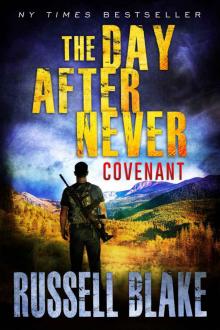 The Day After Never - Covenant (Post-Apocalyptic Dystopian Thriller - Book 3)
The Day After Never - Covenant (Post-Apocalyptic Dystopian Thriller - Book 3) JET II - Betrayal (JET #2)
JET II - Betrayal (JET #2)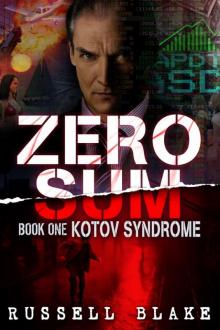 Zero Sum, Book One, Kotov Syndrome
Zero Sum, Book One, Kotov Syndrome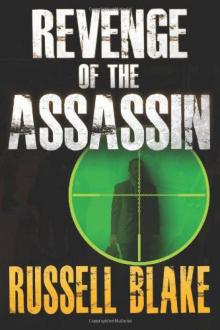 Revenge of the Assassin
Revenge of the Assassin The Day After Never - Insurrection (Book 5)
The Day After Never - Insurrection (Book 5) BLACK in the Box
BLACK in the Box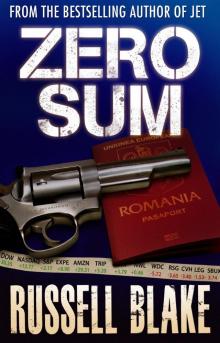 Zero Sum
Zero Sum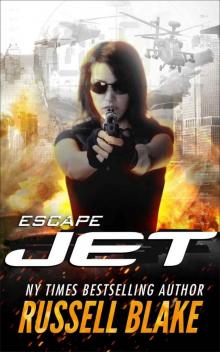 JET - Escape: (Volume 9)
JET - Escape: (Volume 9) The Manuscript
The Manuscript BLACK Is Back
BLACK Is Back Silver Justice
Silver Justice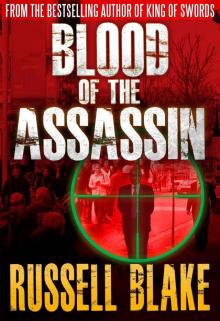 Blood of the Assassin
Blood of the Assassin Rage of the Assassin: (Assassin Series #6)
Rage of the Assassin: (Assassin Series #6) BLACK Is the New Black
BLACK Is the New Black